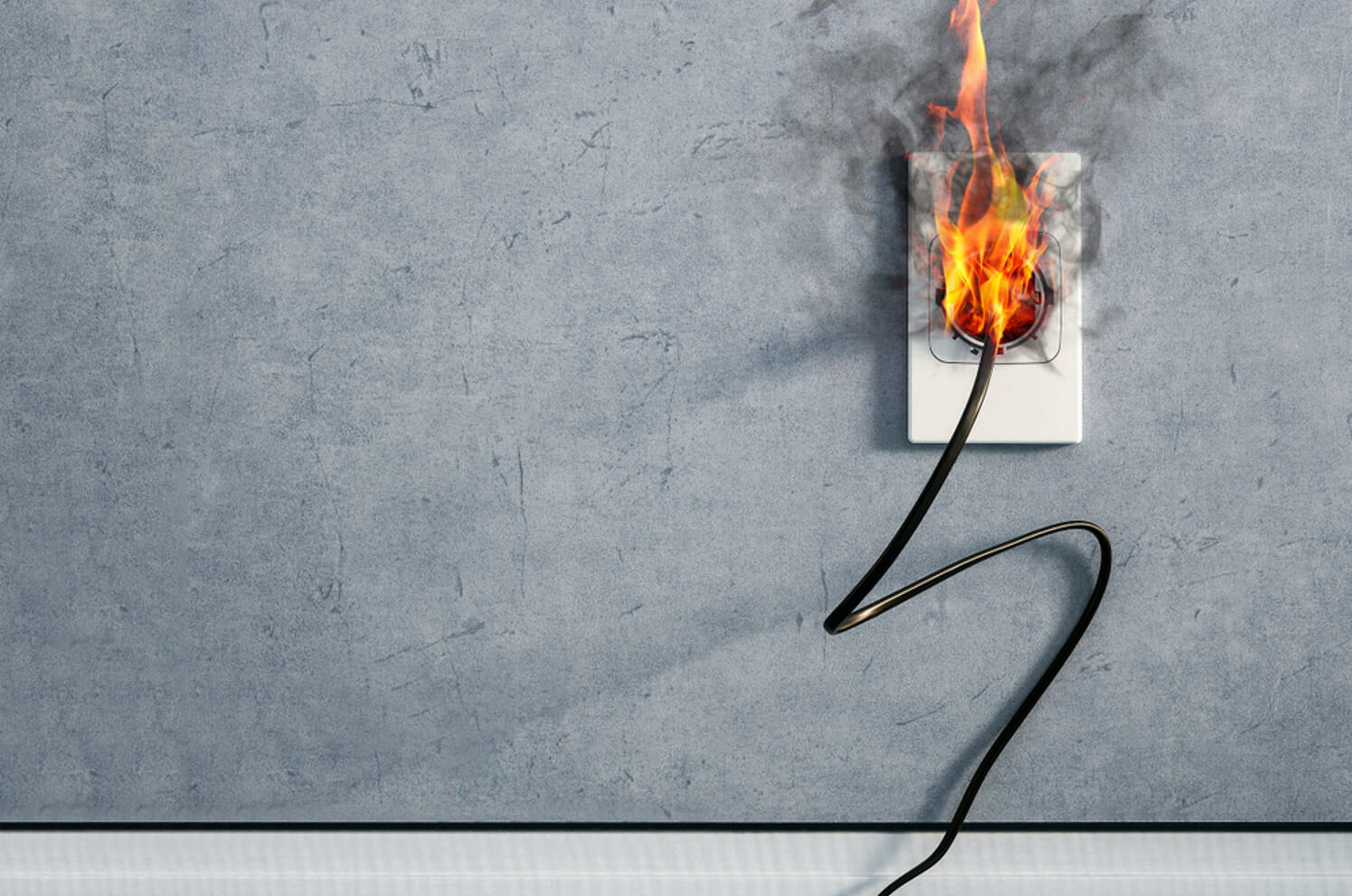Electrical fires can be devastating to families, businesses, the local environment, and wildlife. Small electrical fires can become large-scale bushfires in arid and dry countries such as Australia. Without proper installation and maintenance, an old and faulty electrical system can become the source of an electrical fire. In this article, we discuss the common causes of electrical fires.
1. Faulty Appliances
The leading cause of residential fires in Sydney is electrical appliances. Every home has a lot of them. From computers to dryers, many of these appliances can turn into a serious hazard should they become faulty. If you are aware of the dangers and do regular maintenance, you can avoid an electrical fire.
Regular maintenance is required for most home appliances to keep them operating optimally and safely. Dryers, for example, have the potential to cause electrical fires if they aren’t cleaned out. Dryers can collect a build-up of lint, which blocks vents and filters. Lint is quite flammable and can catch fire easily, so it should be removed regularly.
2. Worn Out Electrical Wiring
Charging cables and extension cords often become frayed or worn out. When the live wire is exposed, it can become a serious hazard and has the potential to cause an electrical fire. Below are some tips on how to identify an old or malfunctioning electrical wire.
- Circuit breaker trips: This is quite a common occurrence in electrical systems. The circuit breaker trips because the system has become too overloaded. So, if you are experiencing regular power trips, it could be a sign of old and faulty wiring.
- Light Fixtures: Most rooms in residential homes will have several light fixtures. A light fixture is a great way to determine issues with electrical wiring. If the lights in your home tend to flicker when you use lots of appliances, it may be a sign of a worn or frayed cord.
3. Circuit Overloads
Electrical fires are often the result of a circuit overload. If an electrical current exceeds the wiring capacity of the circuit, it can cause the circuit to heat up. This is one of the most common causes of electrical fires.
Having too many appliances plugged into an electrical outlet can cause the circuit to overheat. Electrical outlets are designed to shut off when the circuit becomes overloaded. If the electrical wires have a surge in electricity, circuit breakers will cut power from the circuit.
4. Light Fixtures
Light bulbs that overheat are one of the most common causes of electrical fires. As mentioned above, light bulbs can also highlight other electrical issues. Overheating is often caused by incorrect wattage or faulty wiring. If you are using lightbulbs with faulty lamps, the bulb may receive too much electricity.
Electrical wires in light fixtures can become exposed to heat. Wiring can become brittle, and reduce the electrical capacity. This in turn can lead to the light bulb overheating and, in some cases, melting. Fortunately, you can identify issues with lightbulbs early on. If the wiring becomes overloaded, you may see lights flicker.
5. Extension Cords
The incorrect use of extension cords could result in electrical fires. Extension cords should be plugged directly into an electrical outlet. If you are using an extension cord to power an appliance, try to use it only temporarily.
Extension cables are often exposed to the elements, and over time they can become old and worn. So, to avoid common causes of electrical fires such as this one, it’s important to store your extension cables in a suitable space and keep an eye out for any damaged or frayed parts.
How Glenco Can Help
Residential and commercial buildings are filled with electrical wiring and appliances. Electrical fires can start instantly, so being aware of some of the common causes of electrical fires can help you prevent them in the future. It’s also essential that you remember to leave the electrical work to a qualified electrician.
This may sound obvious, we all know water is a great conductor of electricity. But, it’s important to note, that in the event of an electrical fire, throwing water on it can actually make the fires more intense. To put out an electrical fire, you need to use a multi-purpose fire extinguisher.
There is constantly new technology in fire prevention and fire safety, but also new regulations to follow. Glenco has over 30 years of knowledge and experience operating in Sydney. We take pride in providing reliable Electrical and Fire Protection Services that are up to date and follow Australian Safety Regulations.
Contact us to find out how we can assist you.







